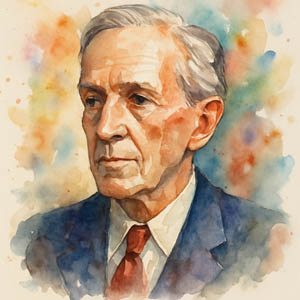~ Upton Sinclair
 Novelist and lifelong advocate for social justice,
Upton Beall Sinclair (1878–1968) was born in Baltimore, Maryland. A brilliant and determined student, he worked his way through school and entered college at 14.
Novelist and lifelong advocate for social justice,
Upton Beall Sinclair (1878–1968) was born in Baltimore, Maryland. A brilliant and determined student, he worked his way through school and entered college at 14.
“All truly great art is optimistic,” he once said. “The individual artist is happy in his creative work. The fact that practically all great art is tragic does not in any way change the above thesis.”
His fictional classic, The Jungle (1906), exposed corruption in Chicago’s stockyards and shocked the world. The book galvanized President Theodore Roosevelt into action, inspiring the creation of the Food and Drug Administration and reforming the meat-packing industry. “I aimed at the public’s heart,” Sinclair explained, “and by accident I hit it in the stomach.”
Inspired by Jesus, Hamlet, and Shelley, Sinclair was a friend of fellow writer Jack London. His words carried a sharp edge of truth: “It is difficult to get a man to understand something when his salary depends on his not understanding it.”
Despite political failures, including a run for California governor in 1934, this fearless truth-teller never gave up. His novel Dragon’s Teeth (1942), which explored Hitler’s rise to power, earned him the Pulitzer Prize in 1943.
Sinclair once reflected: “I am sustained by a sense of the worthwhileness of what I am doing; a trust in the good faith of the process which created and sustains me. That process I call God.”
Named to the Top 100 Writers of the 20th Century, Sinclair remains a symbol of courage and conviction—proof that one person’s words can still change the world.
 Shake the world with your heart. 🌟
Shake the world with your heart. 🌟
